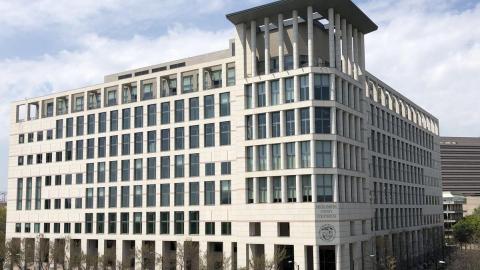Mecklenburg County Youth Recovery Court Selected as One of Six Community-Based Youth Justice Startups Across the U.S.
Article contents

Mecklenburg County's Youth Recovery Court has been selected as one of six community-based youth justice startups across the U.S. funded by the Safely Home Fund, an initiative implemented by Youth Advocate Programs, Inc. (YAP) in partnership with Georgetown University’s Center for Juvenile Justice Reform (CJJR). YAP and CJJR collaborated to create the unique grant to provide a year of funding to seed innovative community-based rehabilitative services for the highest-risk youth, many whose histories include serious offenses, multiple arrests, and lengthy out-of-home placements.
“YAP advocates are literally living life with our highest risk youth,” said Youth Recovery Court Judge Faith Fickling-Alvarez. “Our juveniles trust and bond with their advocates in ways that impact the kids to make better decisions, resulting in lower substance use and early probation terminations. It is now difficult for me to imagine our local juvenile justice system without YAP.”
Learn more and read the full press release from YAP.
About Youth Recovery Court
Youth drug treatment court (YTC) focuses on juvenile delinquency (e.g., criminal) matters and status offenses (e.g., truancy) that involve substance-using youths. YTC works with non-violent, juvenile offenders whose drug and / or alcohol use is negatively impacting their lives at home, in school, and the community.
The YTC is designed to provide immediate and continuous court intervention that includes requiring the child and family to participate in treatment, submit to frequent drug testing, appear at frequent court status hearings, and comply with other court conditions geared to accountability, rehabilitation, long-term sobriety, and cessation of criminal activity.
The underlying premise of the youth drug treatment court is to provide immediate treatment interventions for youth using drugs and / or alcohol, and their families and to provide structure for the participants through the on-going, active involvement and oversight of the treatment court judge and court-based team.